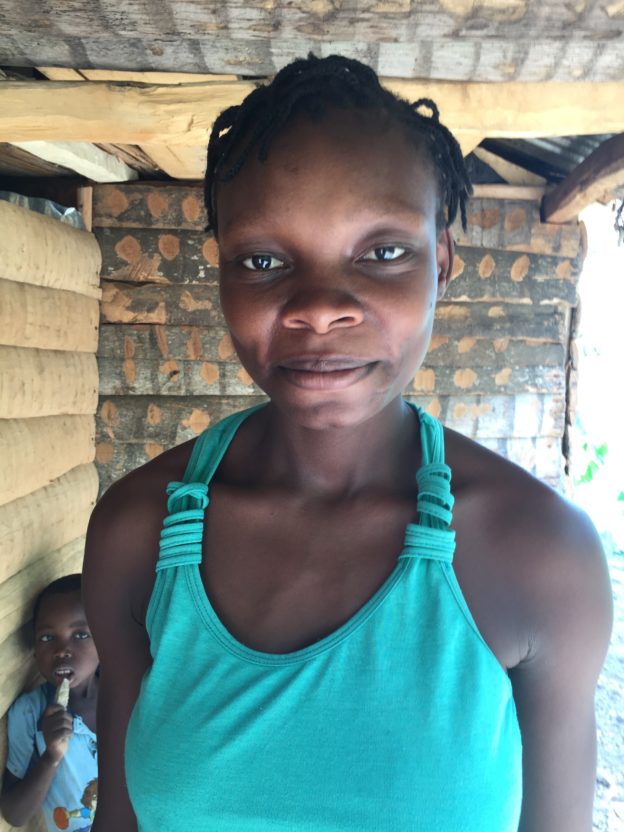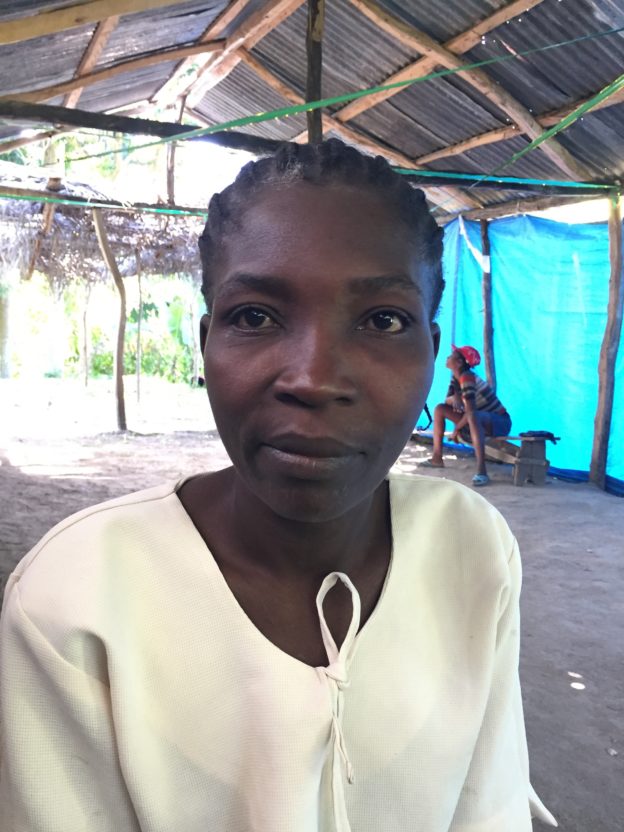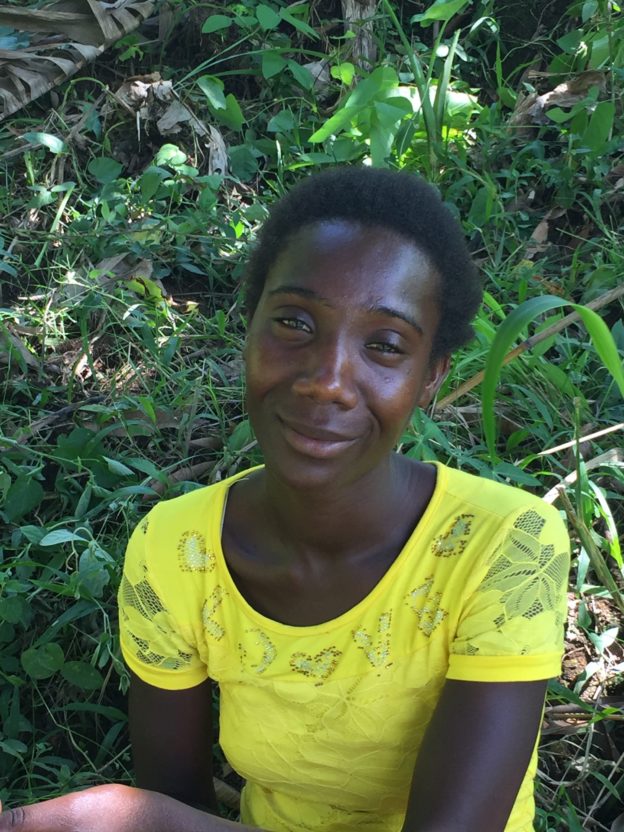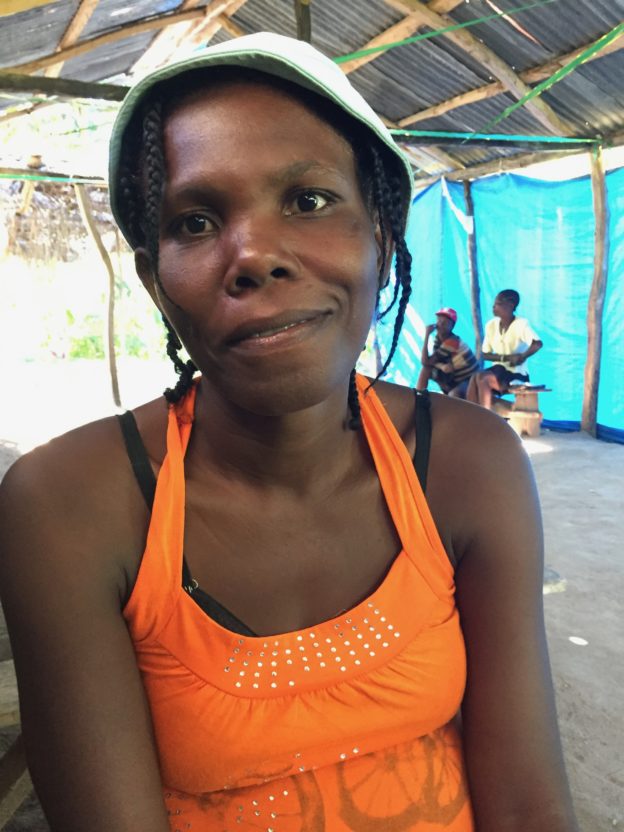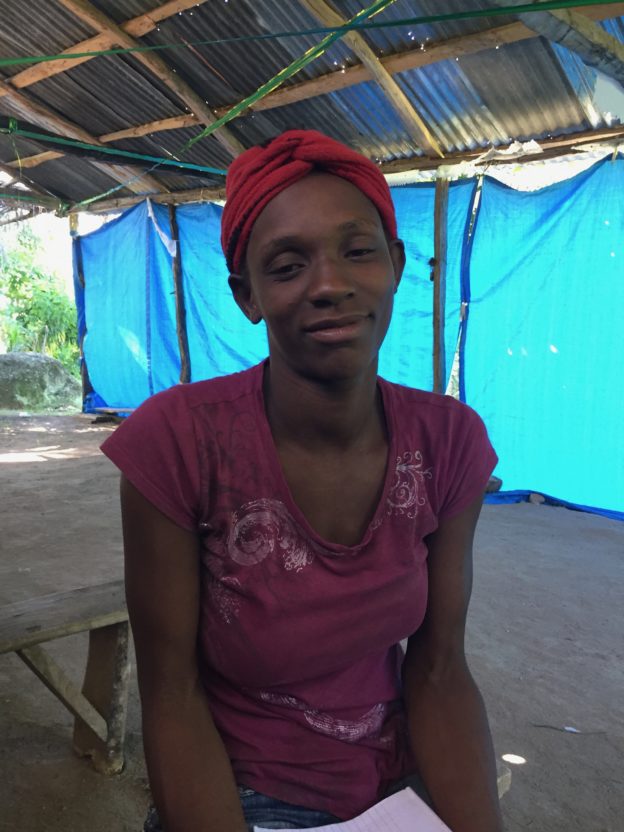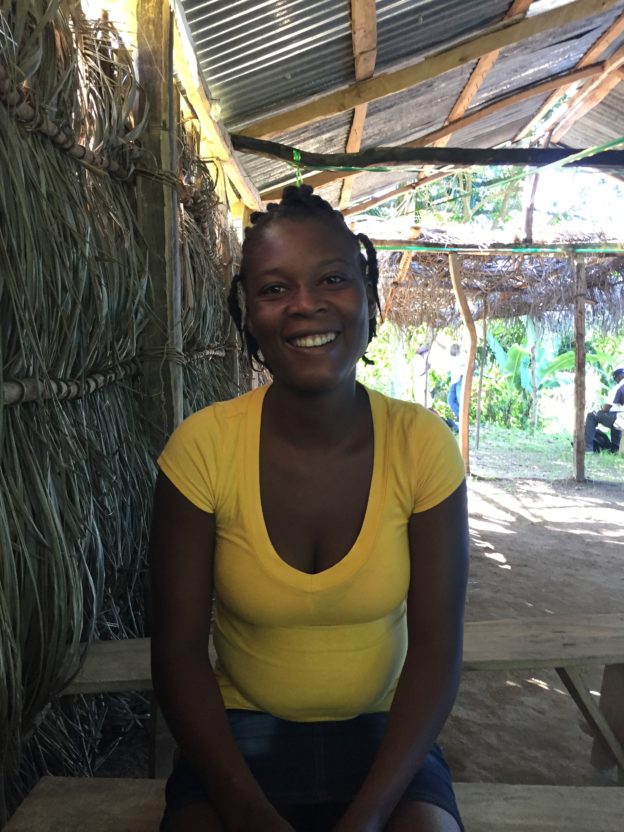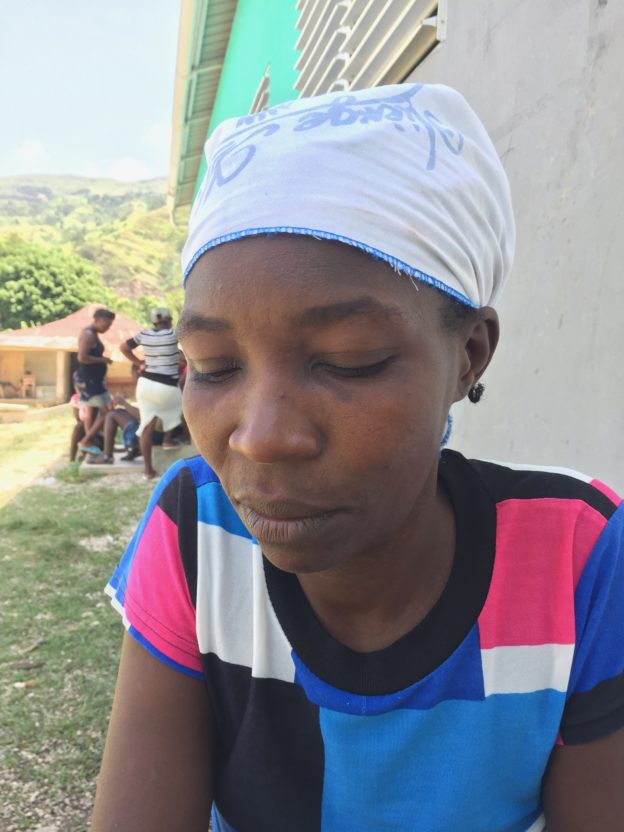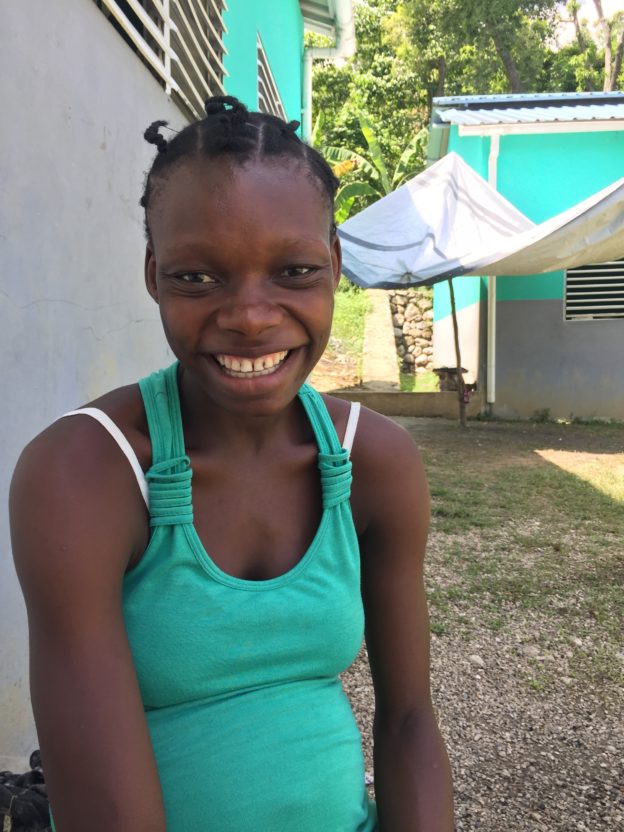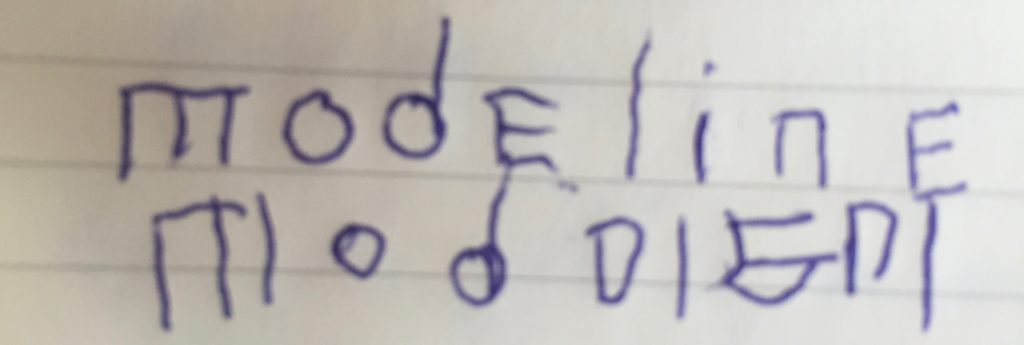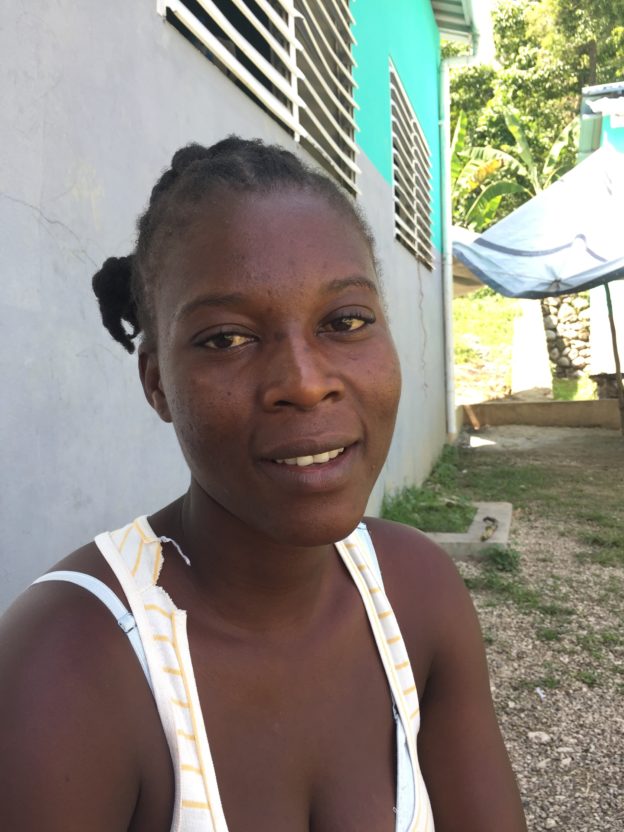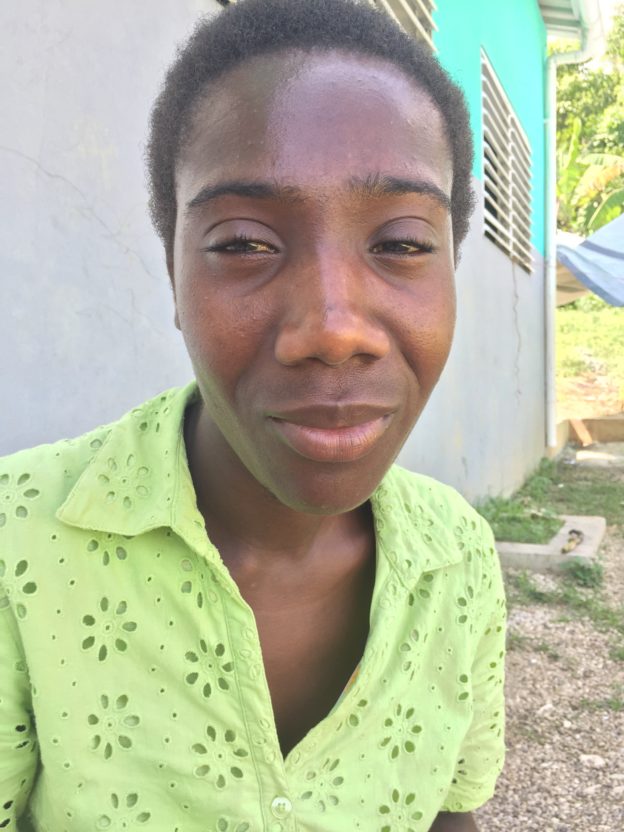Modeline is waiting. She’ll give birth to her second child any day. So, her husband is doing most of the work and most of the running around for the couple these days.
For example, he has been attending Village Savings and Loan Association meetings for her, purchasing shares for the couple every week. They also took out a 3000-goud loan – a little less than $50 – for them to invest in his business plan. He purchased several trees of avocados before harvest. It was a good opportunity for someone willing to work hard. He would have to climb into the trees and pick the fruit just before they were ripe. He’d put them in sacks, and then carry the sacks, one-by-one down the mountain to the roadside to get them to trucks that would haul them for sale in Mirebalais, Lascahobas, or Port au Prince.
But Hurricane Irma’s winds took most of the avocados off the trees before they were ready. He only harvested six sacks full that could be sold. And the bad luck didn’t end there. The truck he loaded the sacks onto broke down on its way to market, leaving his avocados to rot. It was a total loss. He’ll have to work hard, farming for neighbors, to earn the cash to repay the loan.
He has also been doing most of the care for their livestock. Their pig continues to grow, and three of their four goats are pregnant.
Modeline is worried about one of the goats, however. “It’s been really sick. It couldn’t even stand up to eat.” As its condition worsened, it was also attacked by external parasites. These often flourish as a goat sickens, making its condition even worse. But Modeline fed the goat by hand and began giving it regular baths to fight the parasites. She says that she started finding them dead in its fur. The goat has started to stand up and move around a little. It’s too early to say whether she’s been able to save it, but it’s better off than it was.
Her house is almost finished. It still needs doors and windows, but all the lumber is ready. Modeline is just waiting for the builder to get around to the job.
She chose have the house built right next to her mother’s house, and initially that made a lot of sense. Her stepfather had always been kind to her. He helped is mother raise her after the two left Kwafè, where she was born. And he continued to help support her even as he and her mother had a number of young children. Modeline eventually met her husband, but he lived mainly in the Dominican Republic, where he could find work to support her and their little girl. Staying close to her mother meant Modeline had adults nearby to help her and it also enabled her to babysit for her young siblings, which freed her mother and stepfather to work in their fields. It worked for everyone.
The resources that CLM made available to the family eventually convinced Modeline and her husband that he could do well staying at home, farming his mother’s land and taking care of Modeline’s livestock, and initially this led to conflict. Modeline and her husband suddenly found her stepfather troublesome. The older man seemed to resent the younger man’s desire to work independently for his wife and child. He too was trying to make money by buying and selling avocados, and he expected the younger man to work for him.
But Modeline says that the conflict has passed. The two men are now friends “de men nan kou.” That means that they have their hands around each other’s neck. It might sound like choking, but it really means that they are embracing. Modeline couldn’t be happier about it.
Now Modeline has a very simple ambition. She wants to be able to use her livestock to buy a cow, and then use the cow to buy land. The land that she and her husband work right now belongs to her mother-in-law. “Buying our own land is our dream.”
